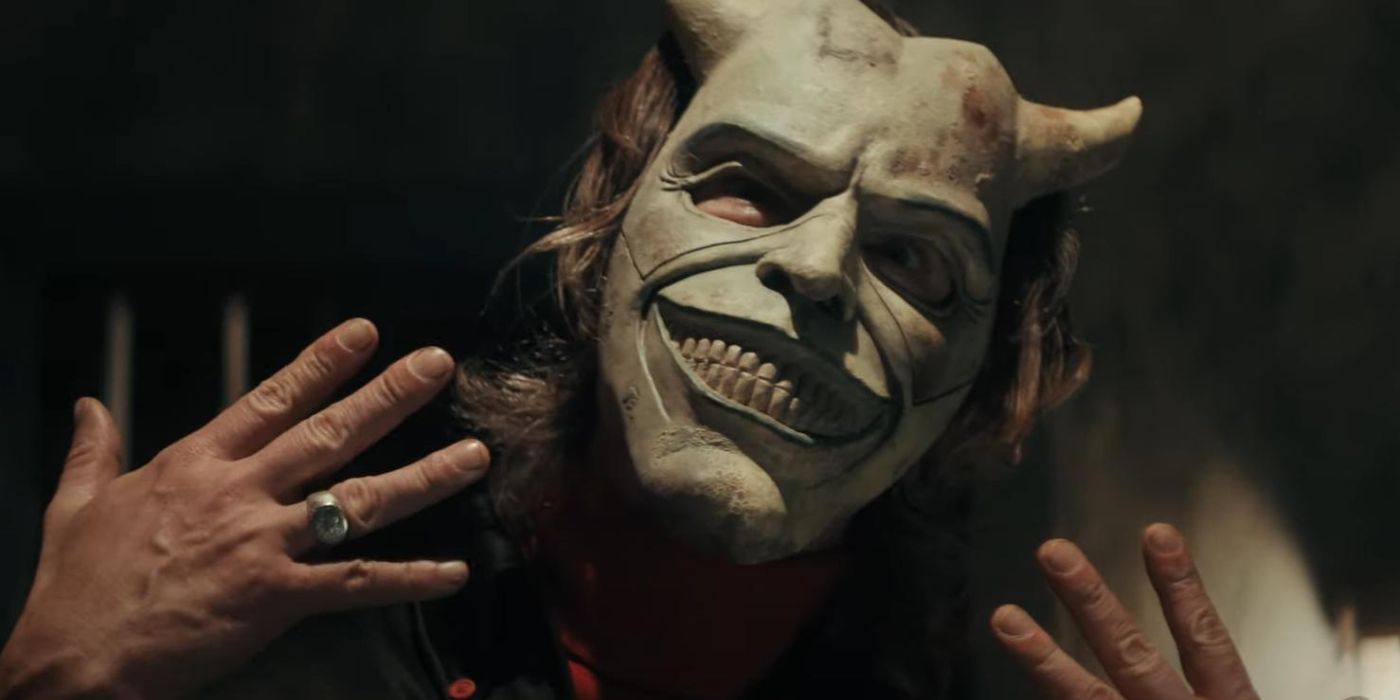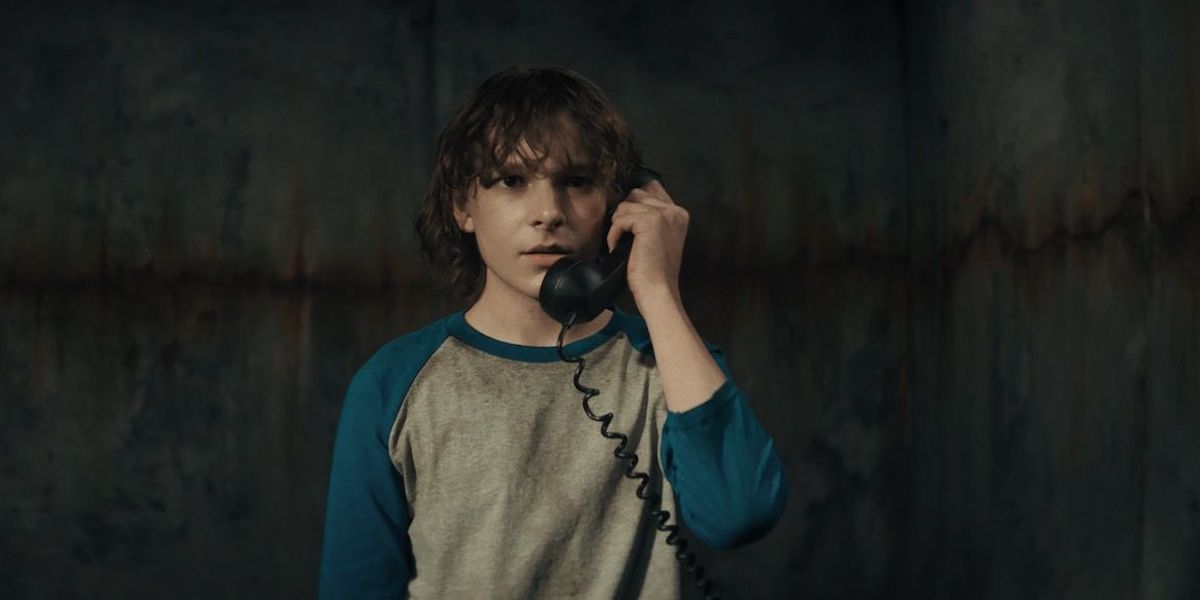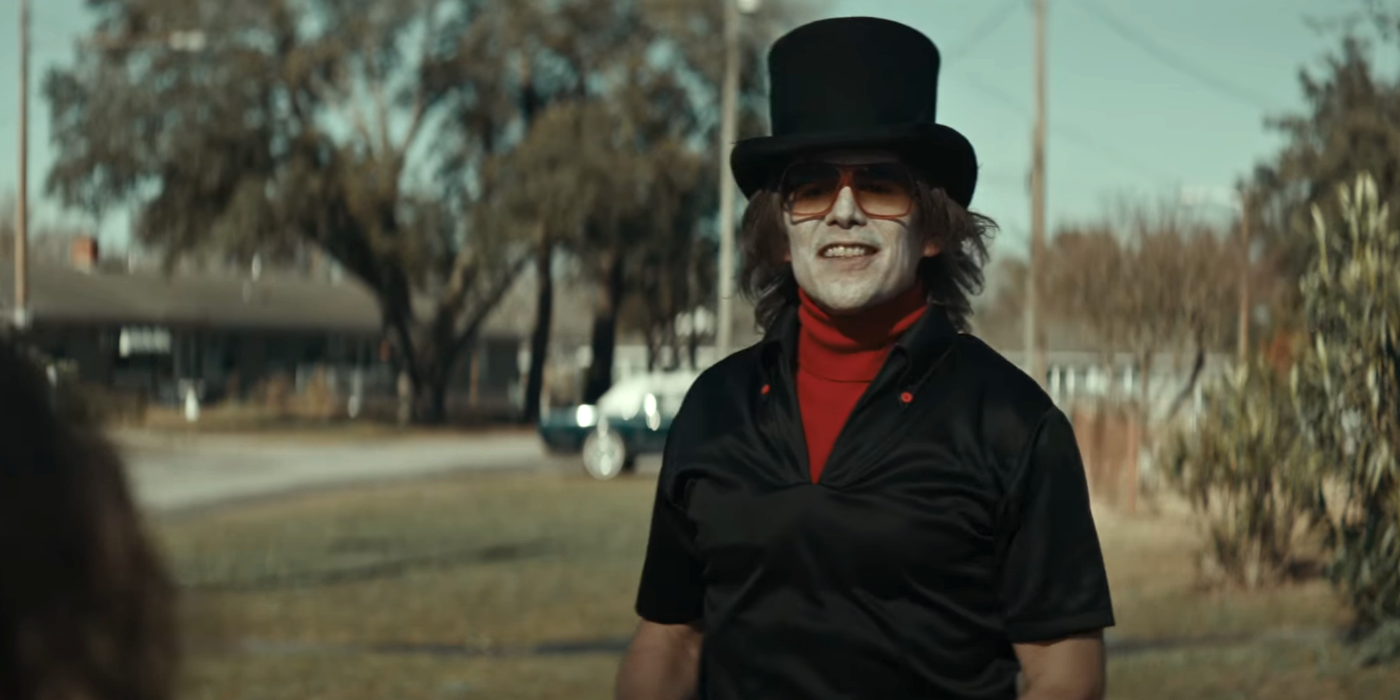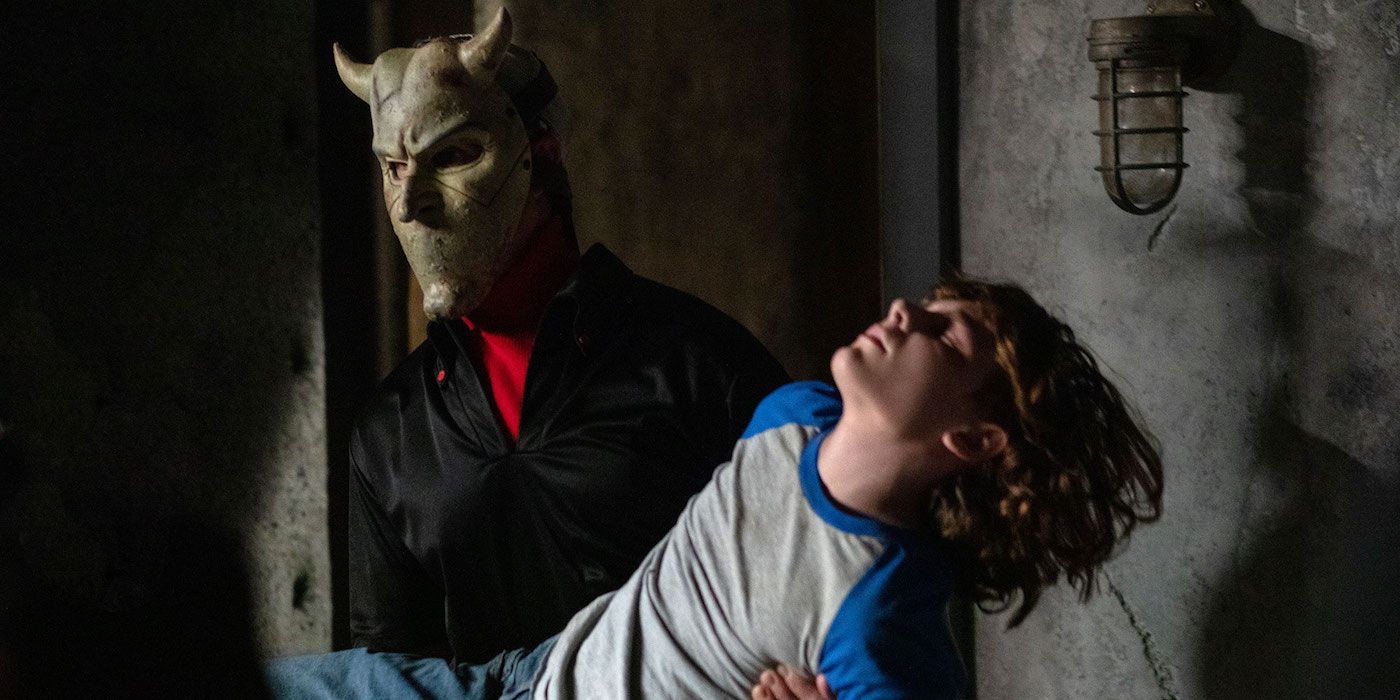The Black Phone was a surprising standout film of 2022, making it not only one of the most popular horror releases of the year but also a box office success. Based on author Joe Hill's short story of the same name, director Scott Derrickson's film stars Ethan Hawke as a child abductor/serial killer in the late 1970s dubbed "The Grabber." With The Black Phone's move to streaming services, new sets of eyes -- as well as some repeat viewers -- devoured the film, with some wondering whether any of the story is rooted in reality.
Serial killers have long held a morbid fascination for audiences. And considering that The Black Phone takes place in the late 1970s, the heydays of serial killers like John Wayne Gacy, Ted Bundy and David Berkowitz, it's easy to envision The Grabber fitting into the era. However, Hill, who wrote the story on which The Black Phone is based, set the record straight.
What Is The Black Phone About?
Based on Joe Hill's 2004 short story, The Black Phone centers around Finney Blake (Mason Thames), a 13-year-old boy who is kidnapped by The Grabber (Hawke). He's then held captive in a soundproof basement that contains a disconnected black rotary phone. The Grabber tells Finney the phone doesn't work, but the boy discovers that, through some odd circumstance, he can use it to communicate with previous victims. Thus, he begins to work with their spirits to try to escape.
Joe Hill Used Real Serial Killers as Inspiration
In an interview with Vanity Fair, Hill explained that, although his story drew inspiration from real serial killers of the era, The Black Phone is not based on any actual case. Knowing that does make sense, as some of the original elements of his story definitely reflect similar character traits to notorious killers like John Wayne Gacy. For example, The Grabber works as a part-time clown.
In the short story "The Black Phone," The Grabber is a heavier-set man who uses his appearance to prey on Finney's kindness, which differs from how the abduction plays out in the film. That's only one example of how book-to-screen adaptations can make adjustments to characters to better fit the film's direction.
The Black Phone Incorporated the Director's Childhood
Following his departure from Doctor Strange in the Multiverse of Madness, Scott Derrickson turned his focus to The Black Phone. Writing the screenplay with co-producer C. Robert Cargill, Derrickson infused elements of his own upbringing within the foundation of Hill's chilling short story.
Inspired by how masterfully Hill interwove an eerie ghost story with a tale of hope and perseverance, Derrickson also drew upon his own youth in Colorado in the 1970s. That included the bullying and abuse inflicted upon his friends and him. He wanted the film to represent an element of childhood trauma that was familiar but not too violent. Ultimately, Derrickson reiterated that The Black Phone is a story of hope and realizing you are much stronger than you think.
The Black Phone is eerie and emotionally devastating, but also it ends on a more uplifting note than other horror offerings. Hawke is a masterful villain -- his first time attempting such a role -- and Derrickson brilliantly balances the darkness and loneliness of childhood trauma with a tale of perseverance and hope. Although not all elements of Hill's story were adapted to screen, the writer did work closely with the director on aspects of the film, truly making it a collaborative effort.




